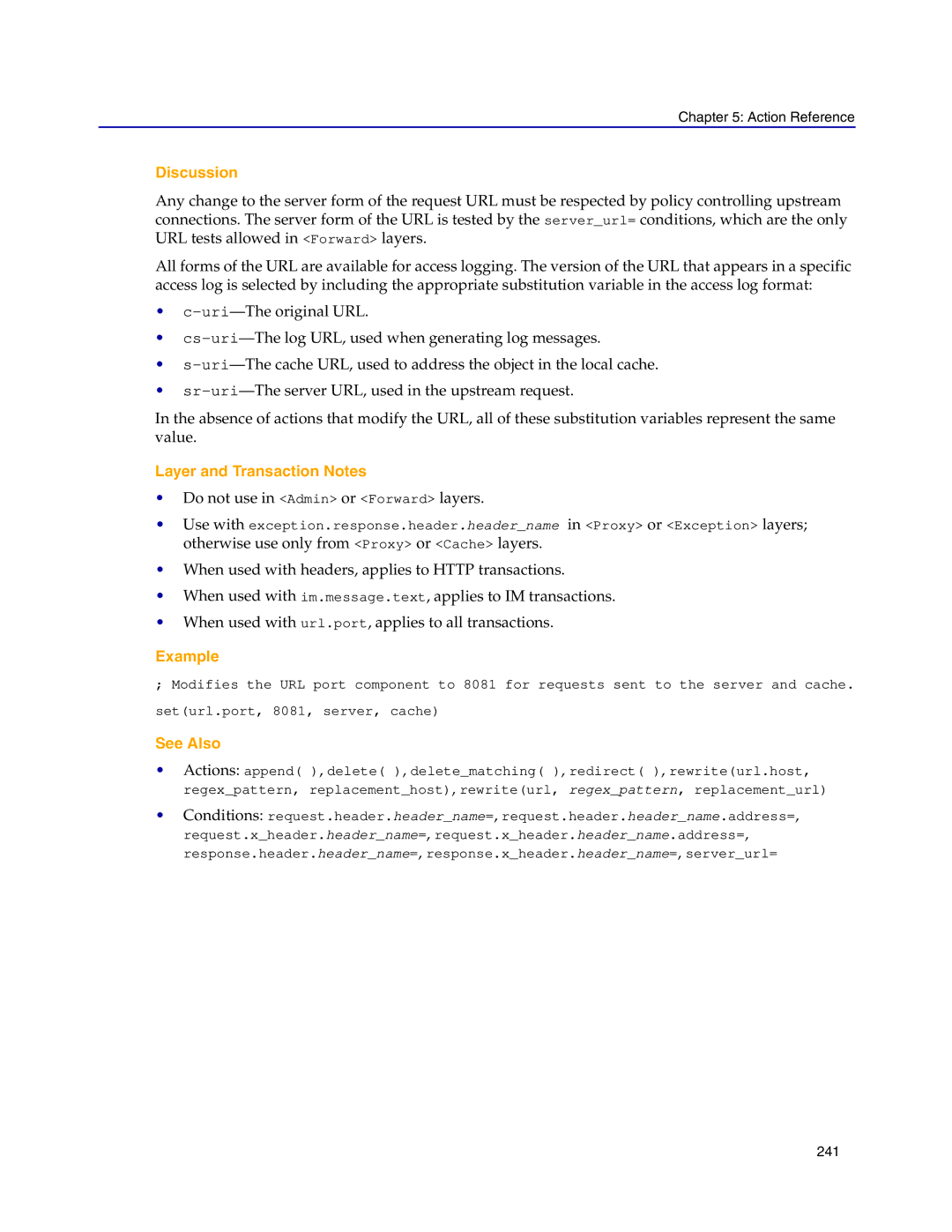Chapter 5: Action Reference
Discussion
Any change to the server form of the request URL must be respected by policy controlling upstream connections. The server form of the URL is tested by the server_url= conditions, which are the only URL tests allowed in <Forward> layers.
All forms of the URL are available for access logging. The version of the URL that appears in a specific access log is selected by including the appropriate substitution variable in the access log format:
•
•
•
•
In the absence of actions that modify the URL, all of these substitution variables represent the same value.
Layer and Transaction Notes
•Do not use in <Admin> or <Forward> layers.
•Use with exception.response.header.header_name in <Proxy> or <Exception> layers; otherwise use only from <Proxy> or <Cache> layers.
•When used with headers, applies to HTTP transactions.
•When used with im.message.text, applies to IM transactions.
•When used with url.port, applies to all transactions.
Example
;Modifies the URL port component to 8081 for requests sent to the server and cache. set(url.port, 8081, server, cache)
See Also
•Actions: append( ), delete( ), delete_matching( ), redirect( ), rewrite(url.host, regex_pattern, replacement_host), rewrite(url, regex_pattern, replacement_url)
•Conditions: request.header.header_name=, request.header.header_name.address=, request.x_header.header_name=, request.x_header.header_name.address=, response.header.header_name=, response.x_header.header_name=, server_url=
